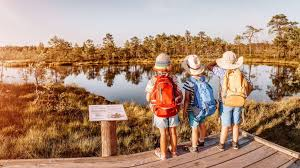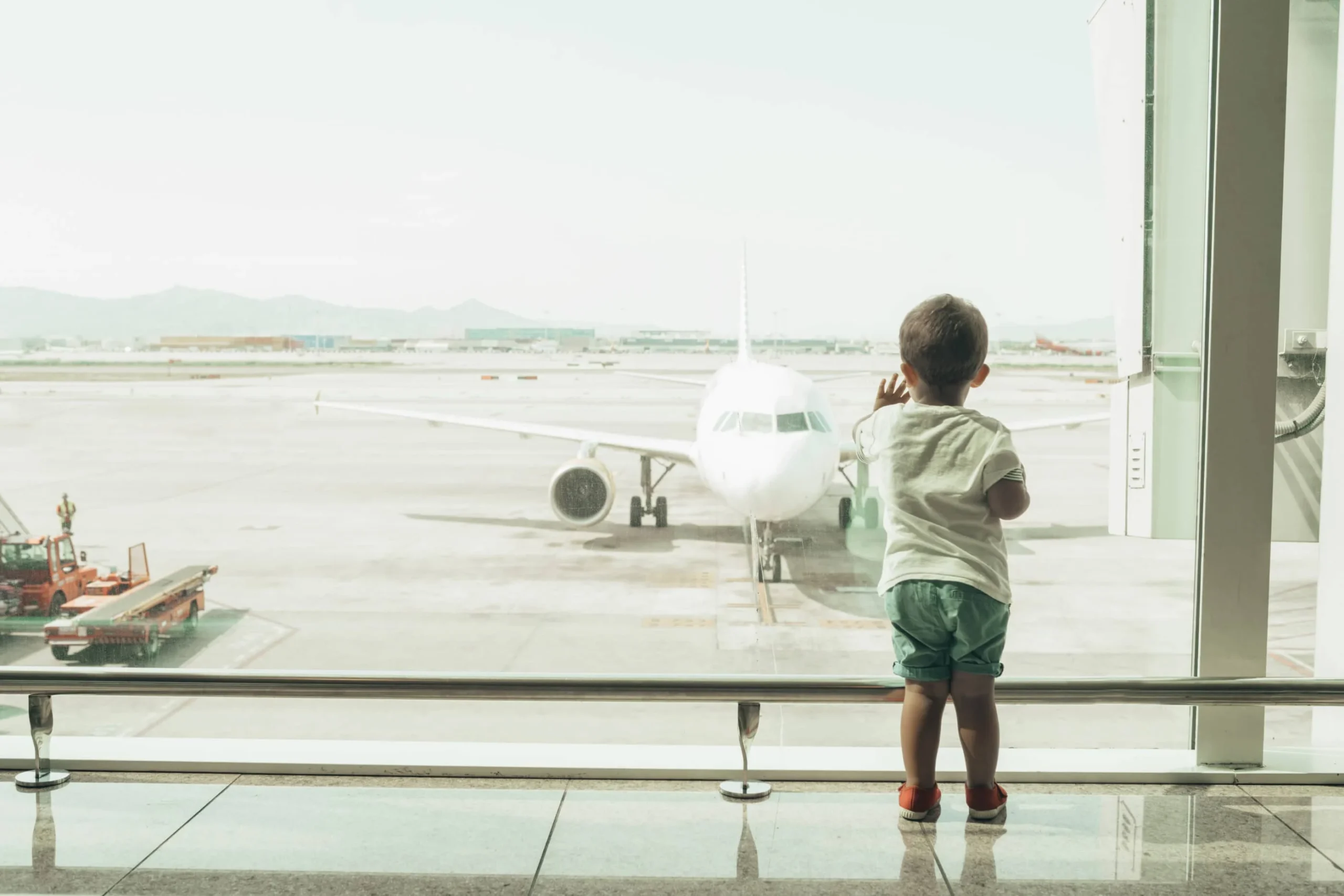Why Travel is Important for Kids Thrive
Travel is often viewed as a luxury, but for kids, it’s much more than that. It’s a gateway to experiences that can shape their perspectives and futures. When children embark on adventures away from home, they don’t just collect souvenirs; they gather stories and lessons that last a lifetime. In an ever-evolving world where cultural boundaries are constantly blurring, giving kids the chance to explore new places becomes essential.
The transformative power of travel can help children thrive in ways we might not even realize. From discovering diverse cultures to learning invaluable life skills, each journey offers unique benefits.

Let’s explore five expert reasons why travel is life-changing for kids and how these experiences contribute positively to their growth and development.
Table of Contents
Increased Cultural Awareness and Empathy
Travel opens doors to diverse cultures, allowing kids to immerse themselves in new ways of life. Experiencing different traditions, languages, and customs firsthand fosters a deeper understanding of the world.
This increased cultural awareness and empathy can help kids develop a more global perspective, making them more open-minded and accepting of others. They may also learn to appreciate the beauty and uniqueness of different cultures, expanding their knowledge and understanding of the world.

By interacting with people from different backgrounds, kids can also develop a sense of empathy towards those who are different from them. They may learn to put themselves in someone else’s shoes and see the world from their perspective, which can help them become more compassionate individuals.
Moreover, travel can break down stereotypes and challenge preconceived notions about certain cultures or countries. As kids engage with people from diverse backgrounds, they may learn that there is often more that unites us than divides us.
Overall, this increased cultural awareness and empathy gained through travel can make children more tolerant, respectful, and understanding individuals. It can also help them navigate an increasingly interconnected world with ease and grace.
As children encounter people from various backgrounds, they learn about different perspectives. This exposure cultivates empathy, helping them appreciate what makes us unique while recognizing our shared humanity.
Through travel, children may taste exotic foods or participate in local festivals. Such experiences encourage curiosity and respect for differences. They see that each culture has its own story and values.
When kids interact with locals during their travels, they develop social skills that transcend language barriers. These meaningful connections enrich their lives and broaden their outlook on society.
Inspiring compassion at an early age is vital for nurturing inclusive future generations. The lessons learned through cultural exploration stay with them long after the journey ends.
Personal Growth and Development
Traveling encourages kids to step outside their comfort zones. They face new challenges, whether it’s navigating a foreign city or trying unfamiliar foods. Each experience becomes a building block for confidence.
Additionally, kids learn to adapt to new environments and situations. They become more resilient and flexible in the face of change.

Travel also exposes children to different cultures, languages, and ways of life. This broadens their perspective and helps them develop empathy and understanding for others.
Through travel, kids can discover their passions and interests. They may find a love for art after visiting a museum or develop an interest in history by exploring ancient ruins.
Overall, traveling promotes personal growth and development by exposing children to new experiences, expanding their knowledge and skills, and helping them discover their identity.
As children learn to adapt to different environments, they develop resilience. When things don’t go as planned, they discover problem-solving skills that serve them well beyond the trip.
Meeting diverse people teaches valuable social skills. Kids engage with individuals from various backgrounds and cultures, fostering friendships that expand their worldview.
Moreover, travel often sparks curiosity about history and geography. Visiting historical sites or natural wonders ignites an interest in learning that isn’t confined to textbooks.
These experiences contribute significantly to personal growth, shaping young minds into open-minded thinkers prepared for a complex world ahead. The journey of self-discovery begins on these adventures!
Exposure to New Experiences and Ideas
Travel introduces kids to a world bursting with new experiences and ideas. Whether it’s tasting exotic foods or navigating bustling markets, every moment offers something fresh.
Travel exposes kids to different cultures, customs, and ways of life. They may encounter new languages, traditions, and beliefs that challenge their understanding of the world. This exposure can broaden their perspectives and teach them tolerance and acceptance for diversity.
Moreover, travel allows kids to see historical sites, museums, and landmarks that they may have only read about in books. It brings history to life and helps them develop a deeper appreciation for different cultures and societies.
By immersing themselves in new experiences and ideas, kids can also discover new passions and interests. They may be inspired by art in a foreign city or intrigued by a local tradition. These experiences can spark their curiosity and expand their knowledge in ways that cannot be replicated in a classroom.
Traveling with kids encourages independence as they learn how to navigate unfamiliar places, make decisions, and problem-solve on their own. They may have to figure out how to read maps or order food in another language. These moments of independence build confidence and self-reliance in kids.
Furthermore, traveling exposes kids to situations where they have to adapt quickly to changing environments. For example, they may encounter unexpected delays or changes in plans that require flexibility on their part.
Seeing how others live encourages curiosity. Kids learn about different customs, traditions, and lifestyles that widen their perspective. This exposure fosters creativity as they embrace diverse ways of thinking.
Adventure can also spark interest in various subjects. A visit to historical sites might ignite a passion for history, while exploring nature could inspire future scientists. Each journey plants seeds of knowledge that flourish over time.
Moreover, engaging with locals helps children understand global issues firsthand. Conversations about life in another country can be enlightening and transformative.
Each trip becomes an opportunity for them to ask questions, seek answers, and grow intellectually—all vital elements for developing well-rounded individuals ready to tackle the world ahead.
Quality Time with Family
Traveling as a family creates memories that last a lifetime. When you step away from daily routines, the world opens up for shared adventures.
Exploring new places together fosters deeper connections among family members. Whether it’s navigating an unfamiliar city or hiking through stunning landscapes, these experiences strengthen bonds.
Kids learn to appreciate each other while facing challenges as a team. They see their parents in different lights—engaging with locals, trying new foods, and embracing spontaneity.
Family travel prompts laughter during unexpected mishaps and joy in simple moments like watching sunsets or enjoying picnics. These treasured times become stories retold for years to come.
Moreover, turning off screens paves the way for genuine conversations. When families travel together, they rediscover one another amidst vibrant cultures and breathtaking sights.
Practical Skills and Learning Opportunities
Travel offers kids a treasure trove of practical skills that classroom learning often cannot provide. Navigating new cities helps them develop problem-solving abilities and confidence in decision-making.
Learning to read maps or use public transport makes geography come alive. Kids become more aware of their surroundings, enhancing their spatial awareness and critical thinking skills.
Cultural interactions also teach communication. They learn how to engage with others who may speak different languages or have distinct customs. This builds social skills and adaptability.
Cooking classes abroad can spark an interest in culinary arts, while local workshops might introduce them to traditional crafts. These hands-on experiences create lasting memories linked to newfound knowledge.
Engaging with diverse educational environments fosters curiosity about the world. It encourages kids to ask questions and explore topics beyond textbooks, cultivating lifelong learners eager for discovery.
Conclusion: The Benefits of Travel for Kids are Endless
Travel opens doors to a world of opportunities for kids. It’s more than just visiting new places; it’s about cultivating an understanding and appreciation of diverse cultures. Through travel, children learn empathy as they interact with people from different backgrounds.
Personal growth is another significant benefit. Kids face challenges while traveling, whether it’s navigating an airport or trying unfamiliar foods. These experiences build resilience and confidence.
New experiences spark curiosity and creativity in young minds. They gain exposure to innovative ideas that can shape their thinking long after the trip ends.
Family bonding time becomes richer during travels. Shared adventures create lasting memories that strengthen relationships and foster communication skills among family members.
Practical skills gained through travel are invaluable. Kids learn organization, problem-solving, and adaptability—skills essential for future success.
The benefits of travel for kids truly are endless, enriching their lives in profound ways while helping them thrive in today’s interconnected world.
Click here for related details.
Stay tuned on Travelyas for insight details.

